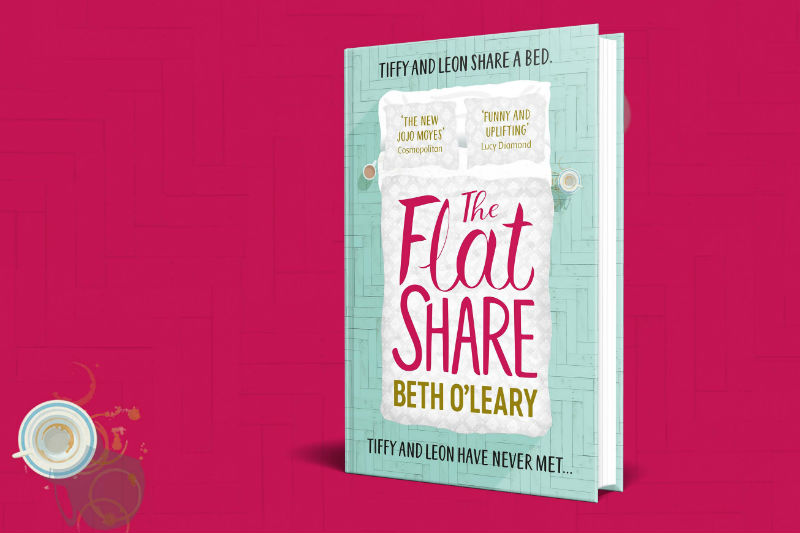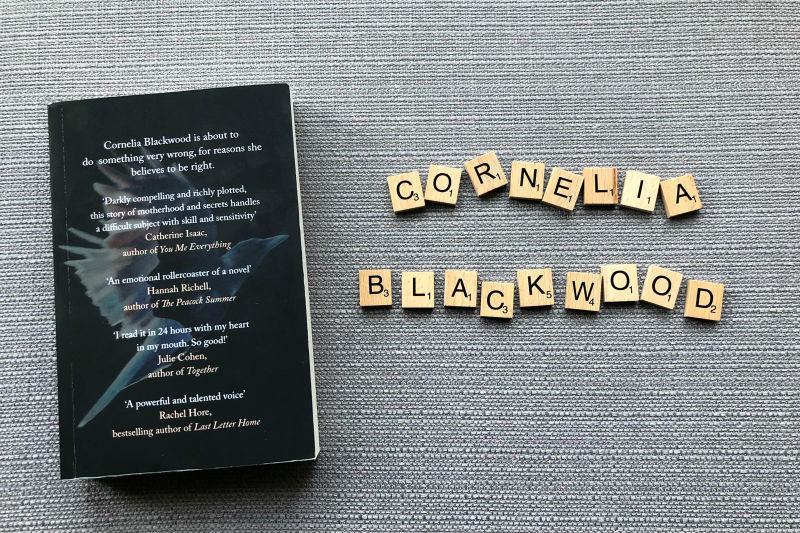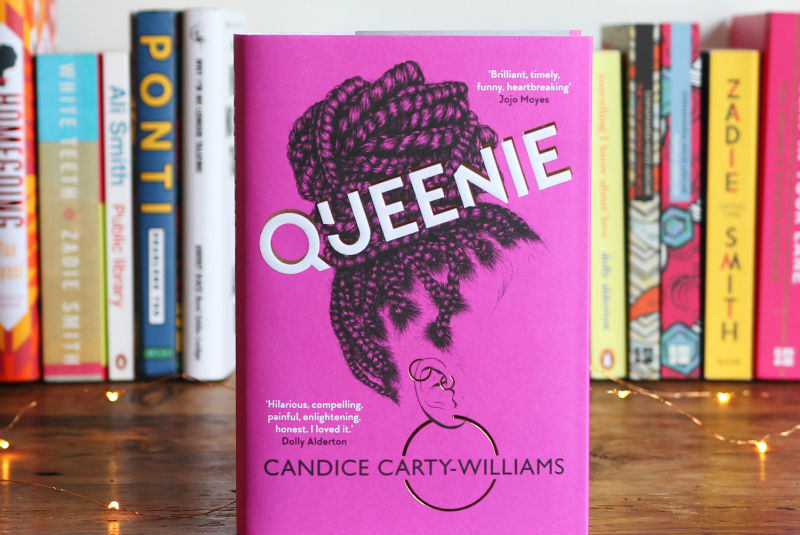Queenie by Candice Carty-Williams
I’m ashamed to say that it took a book with a black protagonist to make me realise how lacking in diversity the majority of my recent reads have been. And for that reason, I found Queenie an eye-opening, important book, and the fact that it’s hugely compelling was just a bonus. Queenie is an unforgettable heroine, and this is not your average rom-com. Yes, there’s love (well, there’s certainly sex) and yes, there are laughs (and plenty of them), but this is a cut above the genre’s average. It’s so real that I felt a little like a voyeur looking in on Queenie’s life. And the ending (which I won’t give away) is pure perfection.
When we meet Queenie, things aren’t going too well. In the opening scene, she’s having a coil removed (that’s got to be a first, surely?) and that sets the tone for this refreshingly honest look at a mid-twenties black woman’s life. We soon learn that her relationship with Tom is in trouble, and things go from bad to worse as she tries to recover from this loss in all the wrong ways.
Carty-Williams’ cast of characters is large and wonderfully drawn. From loyal and straight-talking best friend Kyazike to Queenie’s hilarious grandparents to her frank teenage cousin Diana, these are people who walked straight off the page, for me. And it’s not only the characterisation which was perfect. I can’t fault the pace or the plotting, and I was kept guessing throughout as the author railed against some of the genre’s norms.
I feel a little lost, having finished Queenie this morning. A little bereft. I’ve started another book and it’s great, but I feel like Queenie has left a hole that will last for a long time. I can’t recommend this timely, heartbreaking and heartwarming novel enough. Read it. You won’t be sorry.
Reviewed by Laura Pearson
Click here to join The Motherload® Book Club
The Flatshare by Beth O’Leary

The premise here is irresistible. Tiffy and Leon share a flat and, indeed, a bed, but they’ve never met. This is uplit at its finest. Tiffy has just come out of a relationship and needs somewhere cheap to live in London (and we all know how easy that is to find). Leon needs to free up some cash to help with legal costs for his brother, who has been wrongly imprisoned. And so, Leon (who works nights as a nurse) lets out his flat to Tiffy (who works days as an editor).
I absolutely adored the way the friendship between Tiffy and Leon develops oh-so-slowly, with notes left for one another that start functional and informative and gradually become chatty. Space is negotiated and leftover food is shared, and all the while the two protagonists (who take turns to tell this story) have never come face to face. Until they do, in embarrassing circumstances. By this point, I was on the edge of my seat the way I would be when reading a thriller, desperate for their paths to finally cross.
Another thing I really admired was the slow unravelling of the story of Tiffy’s last relationship. I wasn’t expecting such a serious storyline, for some reason, and I thought it was told beautifully and made a great contrast to the central, feel-good plot. The surrounding characters were drawn brilliantly, from Leon’s brother to Tiffy’s well-meaning friends and colleagues. And it left me feeling so happy, and wanting to recommend it to just about everyone. I can’t wait to see what Beth O’Leary comes up with next.
Reviewed by Laura Pearson
Click here to find out more about the next Motherload Book Club read-along
The Flight of Cornelia Blackwood by Susan Elliot Wright

This is a novel told in two interwoven parts: Then, in which the protagonist Leah is falling in love and preparing to settle down and start a family, and Now, in which Leah is alone in the world and clearly grieving. The driving force that kept me turning the pages was the desire to know how this woman got from one situation to the other, and it worked wonderfully. I was captivated. Wright writes beautifully but in no way showily, so that you barely notice that you’re reading. I felt, almost, as if I was in that world, simply observing.
In the Now part of the book, Leah befriends a single mum and her young son, and the relationships here are tender and vividly portrayed. Leah’s need to connect with this child is touching. But there is a sense of dread lingering in the background, as the knowledge that something has happened to bring Leah to the place where she finds herself nags at you, and you speculate on how that might affect these new relationships she’s forming in the present.
As the story of the past tumbled out and things in the present began to go awry, I almost didn’t want to read on. But I couldn’t stop. And once I’d finished, I lay on my bed for about half an hour, reeling. I’ve never known such honest and raw writing about early motherhood, and loss (which some might find triggering). It took me straight back to my first days as a mother, and the helplessness and fear that consumed me. It takes a powerful book to reach a reader so viscerally. I hope it is read and passed around and read again, by mothers everywhere.
Reviewed by Laura Pearson
Disclaimer: contains Amazon affiliate link, each purchase results in a teeny tiny sum of money going to The Motherload® which we use for the upkeep of the site.



No comments yet. Be the first one to leave a thought.